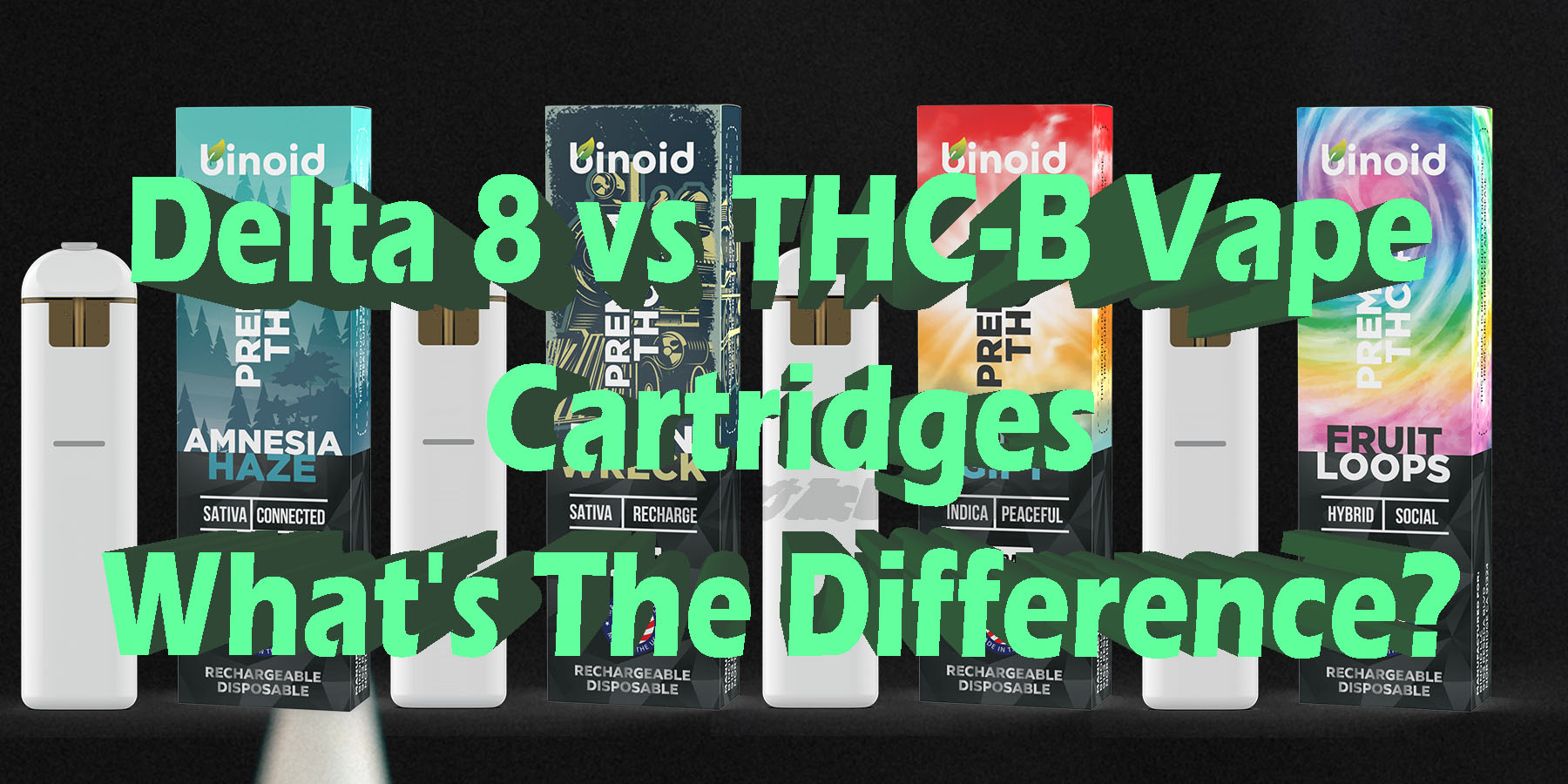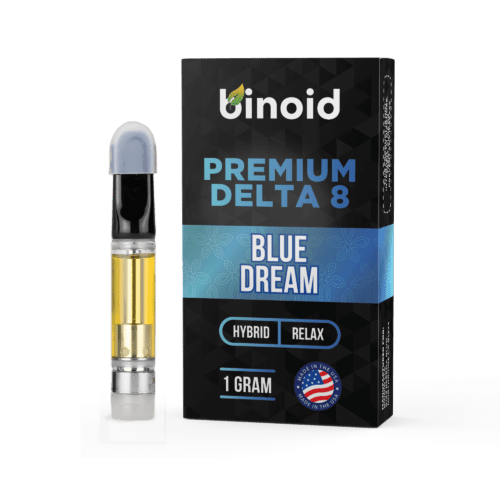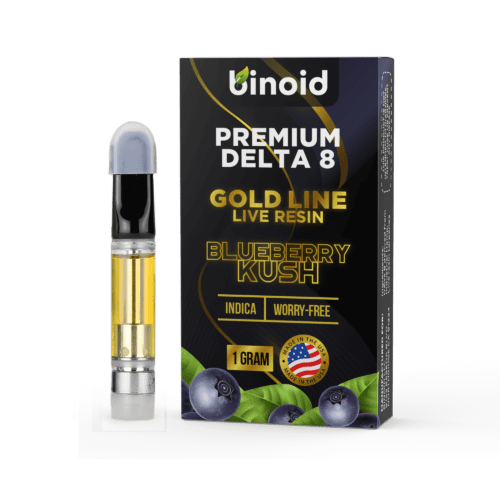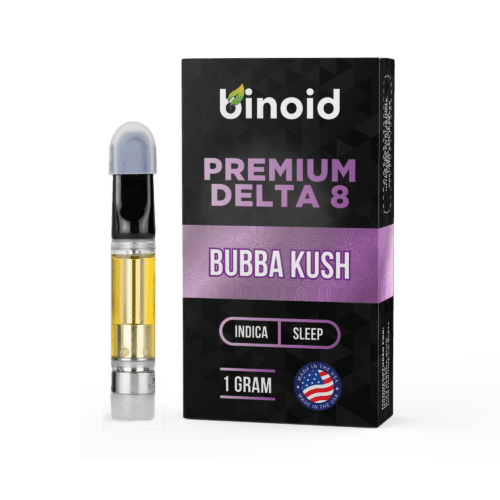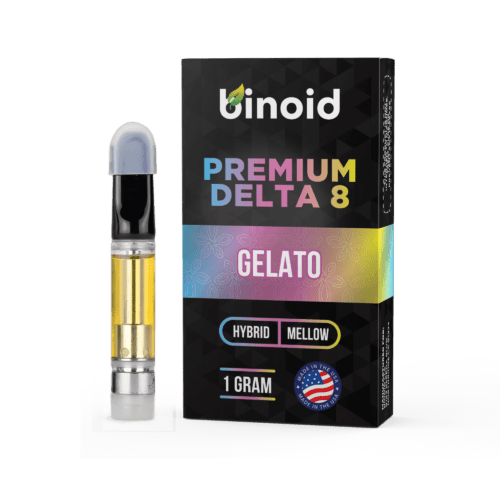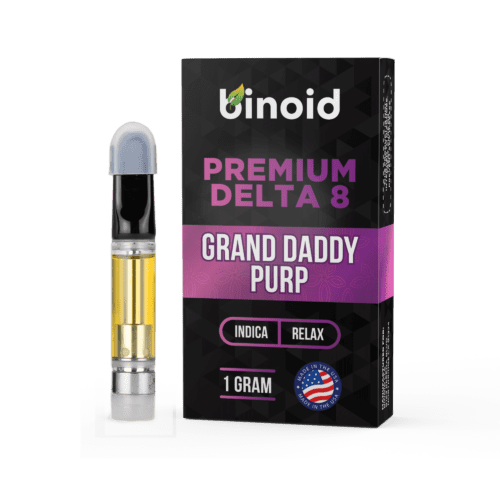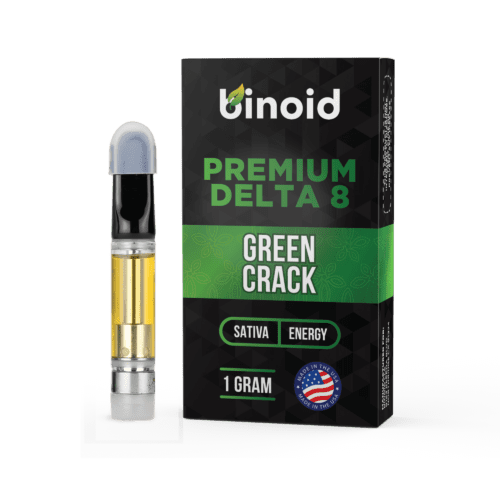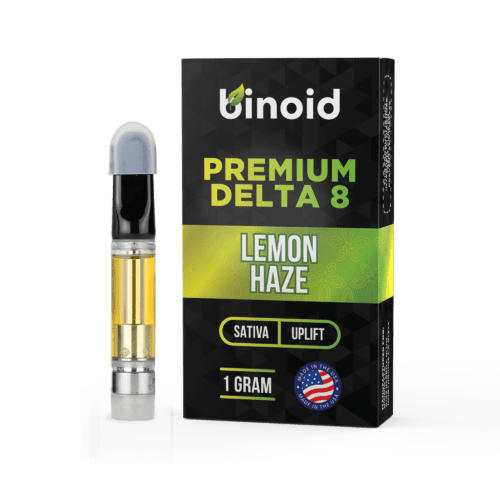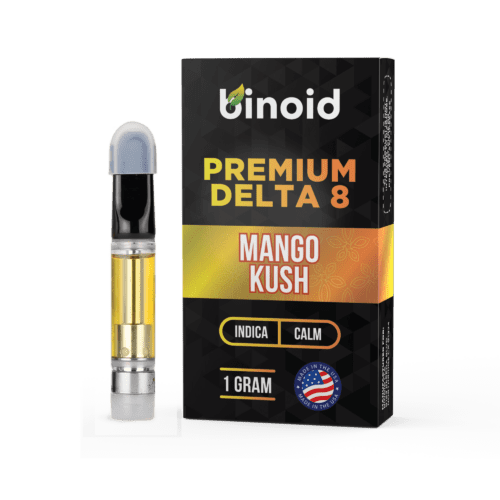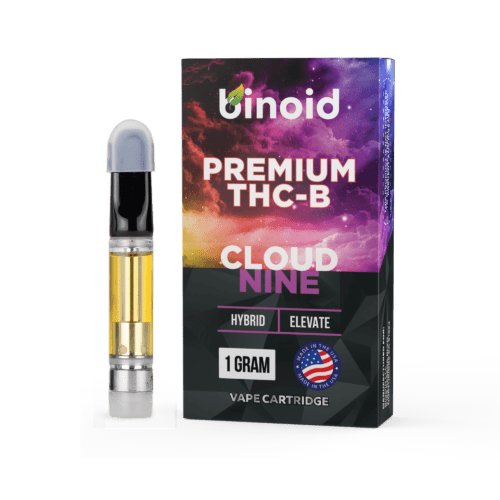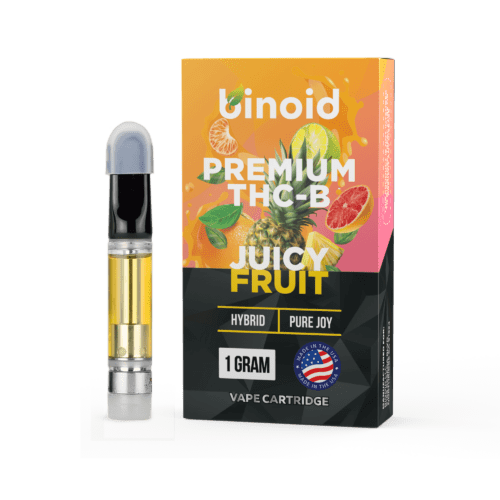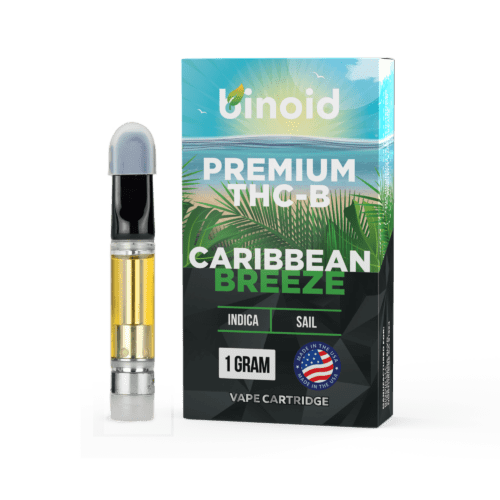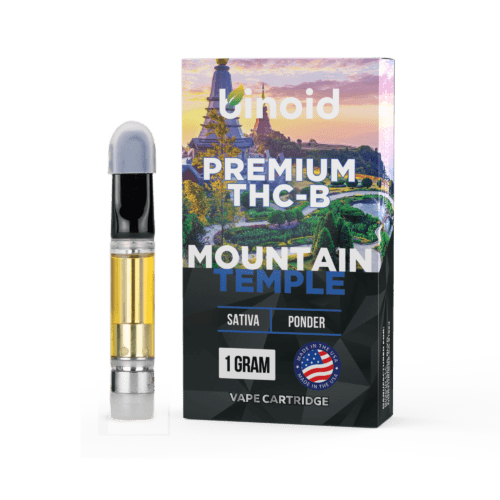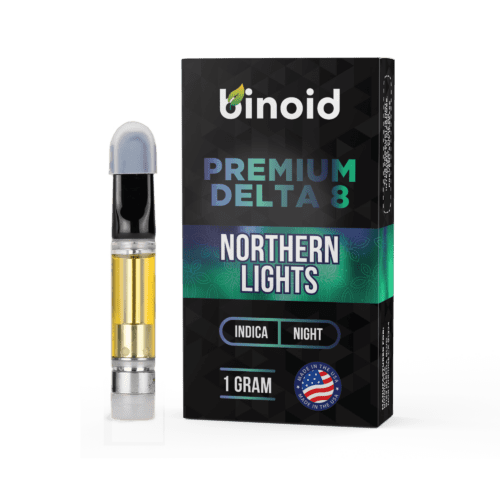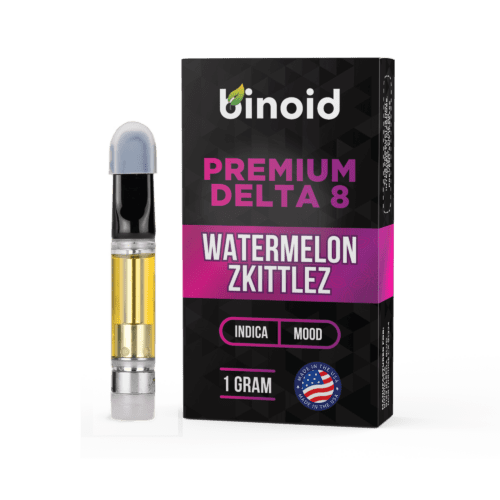The modern cannabinoid frontier is a realm of constant discovery, pushing far beyond the familiar signposts of the past into territories of profound nuance and potency. For today’s discerning consumer, the journey is no longer about a single destination, but about understanding a complex and fascinating map of compounds, each with its own unique topography of effects. At the heart of this exploration are vape cartridges, the sleek and efficient vehicles that allow for precise navigation of this intricate landscape.
As science continues to unlock the secrets held within the hemp plant, we’re witnessing incredible matchups between cannabinoids that represent entirely different philosophies of experience. This brings us to a compelling and high-stakes confrontation that pits a trusted staple against a formidable newcomer: the battle of Delta 8 vape cartridges vs. THC-B vape cartridges, a true test of subtle balance against staggering power.
To Buy Cannabinoid Vape Cartridges Click Here
Recommended products
What are Cannabinoids?
To truly appreciate the dramatic differences in the Delta 8 and THC-B matchup, one must first possess a firm understanding of the fundamental building blocks of their composition: cannabinoids. In the broadest scientific sense, cannabinoids represent a diverse class of chemical compounds that are defined by their ability to interact with and influence the body’s endocannabinoid system. These compounds are the primary active ingredients responsible for the effects associated with the cannabis plant, but their origins are not confined to botanical sources alone.
The scientific community generally categorizes these molecules into three distinct groups: phytocannabinoids, which are synthesized by plants (most famously, the Cannabis sativa plant); endocannabinoids, which are produced naturally within the bodies of humans and other vertebrate animals; and synthetic cannabinoids, which are created artificially in a laboratory setting. Phytocannabinoids, like the Delta 8 and THC-B we are exploring today, have a molecular structure that allows them to interface with our bodies’ internal systems, orchestrating a complex symphony of physiological responses.
The discovery and subsequent understanding of this intricate relationship are rooted in the endocannabinoid system (ECS), a crucial and sophisticated cell-signaling network. The ECS plays a vital role in regulating a vast array of functions to maintain a state of internal physiological balance, a concept known as homeostasis. This system is composed of three core components: endocannabinoids (such as anandamide, often called the “bliss molecule,” and 2-arachidonoylglycerol, or 2-AG), which are the body’s own naturally produced cannabinoid molecules; receptors that these compounds bind to (primarily CB1 receptors, found mostly in the brain and central nervous system, and CB2 receptors, located predominantly in the peripheral nervous system and immune cells); and enzymes that metabolize and break down the endocannabinoids once they have served their signaling purpose.
Phytocannabinoids are able to produce their effects because their molecular shapes allow them to mimic or otherwise influence our natural endocannabinoids, binding to these same receptors and thus modulating cellular activity.
Within the vast family of over one hundred identified phytocannabinoids, there is a clear and important distinction between major and minor compounds, as well as a distinction between their active and acidic forms. Major cannabinoids, such as cannabidiol (CBD) and the well-known Delta 9 THC, are the most abundant active compounds and have been the subject of extensive scientific research and public discussion for many decades. In contrast, minor cannabinoids exist in much smaller, often trace, amounts. Delta 8 THC and THC-B both fall squarely into this category.
Furthermore, most cannabinoids exist in the raw cannabis plant in an acidic form, such as THCA and CBDA. These are known as cannabinoid acids and are the biosynthetic precursors to the active compounds we are more familiar with. THCA, for example, is a major cannabinoid in its raw form, often the most abundant compound in uncured hemp flower.
This fundamental distinction between different types of cannabinoids is absolutely essential to understanding the landscape of the modern hemp industry. The 2018 Farm Bill, a landmark piece of federal legislation, federally legalized hemp and all hemp-derived products, provided they contain no more than 0.3% Delta 9 THC by dry weight. This legal framework, while sharply focused on restricting the specific molecule of Delta 9 THC, inadvertently created a massive opportunity for the scientific exploration and commercialization of other cannabinoids that could be legally sourced from compliant hemp.
This legal pathway, combined with significant advancements in agricultural breeding, chemical conversion, and purification techniques, has directly enabled the rise of products centered around compounds like the isomer Delta 8 and the powerful homolog THC-B, empowering consumers with a sophisticated palette of experiences.
Recommended products
What are Cannabinoid-Infused Vape Cartridges and How are They Typically Created?
Cannabinoid-infused vape cartridges, often simply called “vape carts,” are small, pre-filled containers that hold a liquid formulation of purified cannabinoid distillate and, typically, aromatic terpenes. These self-contained units are meticulously engineered to attach to a compatible battery, commonly known as a vape pen or 510-thread battery, which provides the necessary electrical power to heat the liquid and instantaneously transform it into an inhalable vapor.
The primary function of a vape cartridge is to offer a convenient, discreet, and highly efficient method for consuming cannabinoids. Unlike other consumption methods that require more preparation or have a significantly delayed onset, such as edibles, vaping allows for the rapid delivery of the active compounds directly into the bloodstream through the vast surface area of the lungs. This results in effects that can be felt almost immediately, often within a matter of minutes, providing users with unparalleled control over their experience as they can take small draws and precisely gauge the effects before deciding to continue.
The marketplace for cannabinoid vape cartridges is incredibly diverse, with products available in a multitude of shapes, sizes, and materials designed to suit various consumer preferences and accommodate ongoing technological advancements. The most ubiquitous size is the 1-gram (or 1mL) cartridge, which offers a substantial amount of oil that serves as a happy medium for both regular and occasional users. However, smaller half-gram options remain popular for those wishing to sample a new strain, while larger 2-gram, 3-gram, and even 5-gram disposable vape pens have emerged for users seeking maximum convenience and longevity.
In terms of shape, the classic cylindrical design with a 510-thread connection remains the undisputed industry standard due to its near-universal compatibility with the vast majority of batteries. Yet, some brands have pioneered proprietary pod-style systems that often feature a sleeker, more modern aesthetic and a magnetic connection, although they require a specific, brand-locked device to function. The materials used in cartridge construction are also a key differentiator, profoundly impacting performance, safety, and the purity of the user experience, with a clear hierarchy from basic plastics to premium glass and ceramic constructions.
While external designs may vary, the core components of a standard vape cartridge are universal and work in precise concert to deliver a smooth, flavorful, and consistent experience. Each part plays a critical, non-negotiable role in the device’s function, from the point of contact with the user to the electrical connection with the power source. A detailed breakdown reveals the intricate design that ensures safety and proper function:
Mouthpiece: This is the uppermost part of the cartridge through which the user inhales the vapor. Mouthpieces are crafted from a variety of materials, including common options like plastic, more premium choices like heat-resistant ceramic, and stylish alternatives like metal or wood. The shape can also differ—flat, rounded, or ergonomically contoured (“duckbill”)—to enhance comfort. The material choice is not merely aesthetic; ceramic mouthpieces, for instance, are excellent at dissipating heat, ensuring a cooler and more comfortable draw.
Tank/Reservoir (Chamber): The tank is the main body of the cartridge that holds the precious cannabinoid-infused oil. It must be transparent to allow the user to monitor the remaining liquid. While some budget cartridges may use polycarbonate plastic, high-quality tanks are almost exclusively made from borosilicate glass. This type of glass is highly durable and, most importantly, non-reactive, ensuring that there is no chemical leaching into the oil, which could alter the flavor and compromise the purity of the terpenes and cannabinoids.
Atomizer/Heating Element: The atomizer is the functional heart of the cartridge, responsible for heating the oil to its precise vaporization point (typically between 300-400°F). It consists of a heating coil wrapped around or embedded within a wicking material that draws in the oil. In modern, high-end cartridges, the atomizer core is made of a porous ceramic. This technology, often referred to by brand names like CCELL, provides exceptionally even heat distribution and a larger surface area, which prevents direct contact between the hot coil and the oil. This indirect heating is crucial for preventing burning, which would create a harsh taste and potentially harmful byproducts, and for preserving the delicate and complex flavor profile of the terpenes.
Base/Connector: The base is the bottom part of the cartridge that houses the atomizer and features the threading used to connect the device to a battery. The most common type is the 510-thread (referring to the 10 threads at 0.5 mm per thread), which has become the universal standard, ensuring interoperability between most cartridges and batteries on the market. The base also contains the airflow intakes—small holes that allow air to enter and mix with the vapor—and the electrical connection point that draws power from the battery to activate the heating element when the user inhales or presses a button.
The production of a cannabinoid-infused vape cartridge is a meticulous, multi-stage process that merges precision manufacturing with sophisticated chemical science to ensure a safe, effective, and enjoyable final product. This complex journey can be broken down into three distinct parts: the fabrication of the physical hardware, the formulation of the specialized oil, and the final assembly and rigorous quality control.
Recommended products
Part 1: How the Cartridge Itself is Made and Constructed
The manufacturing of the empty cartridge begins with the high-precision fabrication of its individual components in specialized facilities. The borosilicate glass for the tank is molded and cut to exact specifications. The ceramic for the atomizer core is created from refined mineral powders, which are then fired at extremely high temperatures and shaped, after which the metallic heating coil is carefully integrated. The mouthpiece and base are also manufactured, often through injection molding for plastics or CNC (Computer Numerical Control) machining for metals.
These separate parts are then assembled in a sterile, dust-free clean-room environment (often adhering to ISO standards) to prevent any contamination. Throughout this process, stringent quality control is paramount, with manufacturers conducting tests for air-tightness to prevent leaks, ensuring proper airflow resistance for a good draw, and verifying that the electrical connections are sound and the 510-threading is perfectly machined.
Part 2: How the Cannabinoid-Infused Vape Oil is Made
This highly scientific stage starts with legally compliant, high-quality hemp biomass. The cannabinoids are first extracted from the plant material using various methods. For stable distillates, supercritical CO2 or ethanol extraction is common. For more volatile, full-spectrum extracts rich in acidic cannabinoids, cold extraction methods using solvents like butane or propane are often used to create “live resin.” After extraction, the oil is refined. For minor cannabinoids, this may involve complex isomerization to convert a precursor like CBD into the target molecule. For major cannabinoids, it may involve distillation to achieve high purity. Finally, this purified oil is formulated, often by reintroducing carefully selected terpene profiles to create the desired flavor, aroma, and strain-specific effects.
Part 3: Bringing It All Together
In the final stage, the precisely formulated cannabinoid and terpene mixture is gently heated to reduce its viscosity and is then carefully injected into the empty, assembled cartridges. This is typically done using automated filling machines in a sterile environment to ensure dosage consistency and prevent contamination. Once filled, the cartridges are securely capped or sealed to create an airtight container that prevents any leakage.
The last and arguably most critical step is comprehensive third-party lab testing. A statistically significant sample from each batch is sent to an independent, ISO-accredited laboratory. There, it is tested for potency (to confirm cannabinoid percentages), purity (to ensure it is free from residual solvents, heavy metals, pesticides, and microbial contaminants), and legal compliance (to verify the Delta 9 THC level is at or below the 0.3% threshold). Only after passing these rigorous tests is the batch approved for packaging and release to the market.
Breaking Down Today’s Cannabinoid Vape Cartridges Matchup: Delta 8 Vape Cartridges vs. THC-B Vape Cartridges
With a clear understanding of cannabinoid fundamentals and vape cartridge production, we can now examine the main event. This is a particularly fascinating matchup because it pits a synthesized isomer against a synthesized homolog, highlighting the incredible intersection of chemistry, technology, and legality in the modern hemp industry. This is not a simple comparison of effects, but a deep dive into two fundamentally different types of products that, through different means, have become titans of the market. On one side stands Delta 8 THC, the reliable agent of manageable bliss, created through skillful chemistry. On the other stands THC-B, a powerful molecule that delivers a unique and intense experience.
Recommended products
Contender #1: Delta 8 Vape Cartridges
Delta 8 vape cartridges have firmly established themselves as a cornerstone of the modern hemp market, skyrocketing to popularity for offering a uniquely balanced and accessible experience that resonates with a broad audience. They represent a desirable middle ground that many consumers find incredibly appealing, effectively bridging the gap between the gentle, non-intoxicating properties of CBD and the more powerful, and sometimes overwhelming, intensity of Delta 9 THC.
These cartridges are widely celebrated for their ability to induce a state of serene relaxation, physical ease, and clear-headed bliss, often without the pronounced mental fogginess that can accompany other cannabinoids. This sterling reputation has made Delta 8 a go-to choice for an extensive range of users, from curious individuals just beginning their cannabinoid journey to seasoned enthusiasts seeking a more functional and manageable option for unwinding after a long day, enhancing a low-key social gathering, or simply finding a moment of calm in a hectic world.
At its core, Delta 8 THC (Delta-8-Tetrahydrocannabinol) is a fascinating cannabinoid that exists as a close chemical cousin to the more widely known Delta 9 THC. While it does occur naturally in the cannabis plant, it is classified as a minor cannabinoid because it is found in exceptionally small concentrations, often as a result of Delta 9 THC degrading over time due to oxidation. Its defining structural feature, which dictates its entire character, is a double bond located on the eighth carbon atom of its molecular chain.
This placement distinguishes it from Delta 9, where the bond is on the ninth carbon, and this subtle difference in molecular architecture is scientifically believed to be the primary reason for its unique interaction with the body. Using the analogy of a key and a lock, the body’s CB1 receptors act as the lock; while the Delta 9 “key” fits almost perfectly, the slightly altered shape of the Delta 8 “key” results in a lower binding affinity. This less perfect fit is thought to cause a noticeably milder and more body-focused psychoactive experience, prized for its clarity.
Because its natural scarcity makes direct extraction commercially unviable, the vast majority of Delta 8 is produced through a laboratory process called isomerization, where skilled chemists use a catalyst and controlled conditions to skillfully convert abundant, hemp-derived CBD into a pure, high-quality Delta 8 distillate, which must then be rigorously purified to ensure its safety and potency.
Now, the sheer variety of Delta 8 vape cartridges available on the market today is a powerful testament to the industry’s relentless innovation, offering a meticulously tailored experience for nearly every user. While the core active ingredient is always Delta 8 THC, the final product can be customized in a multitude of ways, with each variation below affecting the overall character, flavor, and performance of the vape:
Recommended products
Shapes & Sizes: Delta 8 cartridges overwhelmingly adhere to the industry standards, most commonly found in 1-gram cylindrical formats with the universal 510-threading. However, as brands seek to differentiate themselves and cater to specific user habits, consumers can also find smaller half-gram options for lighter use, larger 2-gram or even 3-gram disposables for ultimate convenience and extended enjoyment, and sleek, proprietary pod systems that pair with brand-specific batteries, often offering unique features or form factors.
How They’re Constructed: Premium Delta 8 cartridges are invariably built with high-quality, inert materials to ensure optimal performance, safety, and flavor preservation. This includes a non-reactive borosilicate glass tank to hold the viscous oil and an advanced ceramic core atomizer (such as CCELL technology) that provides consistent, low-temperature heating. This superior construction is critical for preventing the oil from burning, which can create a harsh, acrid taste, and ensures that the full spectrum of delicate terpenes is vaporized efficiently for a smooth, pure, and flavorful draw every time.
Potential Use of Live Resin or Live Rosin: To elevate the experience far beyond that of standard distillate, many top-tier Delta 8 cartridges incorporate live resin or live rosin. Live resin is a cannabis concentrate produced from fresh, flash-frozen cannabis plants, a process that preserves a much wider and more volatile range of terpenes and other aromatic compounds compared to traditional methods that use dried and cured material. Live rosin is a highly prized solventless extract created using only heat and pressure. The addition of these full-spectrum extracts to Delta 8 distillate results in a profoundly more robust, authentic flavor and a more nuanced, well-rounded experience often referred to as the “entourage effect.”
Strain-Infused: The perceived effects of a Delta 8 cartridge are heavily influenced by its specific terpene profile, which is carefully formulated to mimic well-known cannabis strains. Sativa-dominant strains are infused with terpenes like limonene and pinene, known for their uplifting and citrusy aromas, making them ideal for daytime use. Indica-dominant strains feature terpenes like myrcene and linalool, associated with relaxation and calming, earthy aromas, perfect for evening or unwinding. Hybrid strains offer a balanced blend of both, providing a versatile experience that can be suitable for nearly any time of day.
Sometimes Combined with Other Cannabinoids: The true artistry of modern cannabinoid formulation lies in the creation of unique, synergistic blends. Delta 8 serves as an excellent and stable base that can be masterfully combined with other cannabinoids to create highly specific and targeted effects:
Non-Intoxicating: Blending Delta 8 with CBD can temper the psychoactive effects for a more grounded and exceptionally balanced experience. The addition of CBN, a cannabinoid often associated with restful and sedative states, is extremely popular for evening formulas. Meanwhile, CBG is often included for its perceived focusing and clarifying properties, creating a unique “calm-alert” sensation.
Mild Potency: To create a more complex yet still gentle experience, formulators may combine Delta 8 with cannabinoids like Delta 10 for a hybrid “body and mind” effect, or with THCV, THCM, or Delta 6 to add unique cerebral nuances and layers to the experience without significantly increasing the intensity.
Moderate Potency: For users who desire a more pronounced euphoric lift, formulators may add Delta 11, a cannabinoid known for its potent effects, or THCA, which is the acidic precursor to Delta 9 THC and converts into it upon heating, effectively increasing the overall potency of the cartridge.
Strong Potency: For experienced users seeking the maximum possible effect, Delta 8 is often expertly blended with highly potent minor cannabinoids like THC-P, or THC-JD. These compounds are known for their exceptionally strong binding affinity to cannabinoid receptors and can dramatically amplify the overall potency, duration, and character of the experience, turning a gentle ride into a powerful journey.
The overall effects of a Delta 8 vape cartridges are characterized by a sense of calm, physical relaxation, and a gentle cerebral uplift that many users find both enjoyable and highly functional. It’s often described as a manageable ‘high’, thus allowing hemp vapers to remain clear-headed and engaged in activities like creative work or socializing. However, this baseline experience becomes much more textured when combined with other formulation factors.
A strain-infused Sativa disposable can feel energizing and giggly, while an Indica blend can produce a profoundly relaxing sensation ideal for winding down. The inclusion of live resin elevates this further by providing a richer taste and a more full-bodied feeling. Delta 8 is also frequently blended with other cannabinoids to create unique effects; combining it with non-intoxicating cannabinoids can add a layer of focused calm, while blending it with more potent ones significantly increases the overall intensity, creating a powerful experience built on Delta 8’s gentle foundation.
Recommended products
Pros & Cons
Like any product, Delta 8 vape cartridges come with their own distinct set of advantages and potential drawbacks. A thorough understanding of these can help you determine if they are the right fit for your personal needs, tolerance, and expectations.
Pros:
Milder, More Manageable Experience: Its lower psychotropic potency compared to its more famous cousin, Delta 9 THC, makes it an excellent and often recommended entry point for beginners. This reduced intensity lowers the barrier for canna-curious individuals and provides a more functional option for daytime or social use where heavy impairment is undesirable. The experience is often described as being more about gentle euphoria and less about overwhelming cognitive shifts.
Promotes a Sense of Calm and Relaxation: Users frequently and consistently report a significant feeling of physical ease and mental tranquility, describing it as a “warm blanket” effect ideal for unwinding. This relaxation is often felt more in the body than in the head, easing tension without necessarily leading to the heavy sedation or “couch-lock” associated with some potent Indica strains. This makes it highly functional for taking the edge off while still remaining engaged.
Clear-Headed Characteristics: Many users greatly appreciate the ability to remain focused, lucid, and coherent while still enjoying the euphoric effects. This stands in contrast to the “mental fog” or short-term memory impairment that can sometimes accompany stronger cannabinoids. This unique clarity is precisely why it has become so popular for creative pursuits like writing or painting, as well as for immersive activities like gaming or watching a film.
Wide Product Variety: The mature market for Delta 8 is saturated with a seemingly endless array of options, allowing for a highly personalized experience. This variety extends beyond just strains (Indica, Sativa, Hybrid) to include complex cannabinoid blends, different extract types (pure distillate vs. full-spectrum live resin), and various hardware qualities to suit any budget or preference.
Federal Legality Under the 2018 Farm Bill: Again, as a hemp-derived product containing less than 0.3% Delta 9 THC, it is federally legal in the United States, which significantly increases its accessibility. This legality, stemming from the Farm Bill’s specific focus on Delta 9 THC, means that Delta 8 products can often be purchased online and shipped directly to consumers in many states, offering a level of convenience not available for state-legal marijuana products.
Rapid Onset of Effects: The vaping consumption method is highly efficient, allowing for effects to be felt within minutes of inhalation. This is because cannabinoids are absorbed directly into the bloodstream via the lungs, bypassing the slower metabolic route through the digestive system. This immediate feedback allows users to carefully titrate their dose, taking a single puff and waiting to accurately gauge the effects before deciding to consume more.
Versatility in Blends: It serves as a fantastic and stable base cannabinoid that can be expertly combined with a whole host of other minor and major cannabinoids. Its moderate potency and pleasant, calming effects provide a solid foundation upon which other compounds can be layered to create highly targeted experiences. Formulators use it as a canvas, adding potent cannabinoids like THC-P for intensity or non-intoxicating ones like CBD for balance.
Less Overwhelming for Sensitive Users: Individuals who are prone to feeling anxious, paranoid, or simply overwhelmed with Delta 9 THC often find Delta 8 to be a much more comfortable and forgiving alternative. The lower affinity for the CB1 receptor appears to reduce the likelihood of inducing these undesirable side effects. This offers a more predictable and reliably pleasant journey for those who are sensitive to THC’s potent psychoactivity.
Recommended products
Cons:
Potential for Overconsumption: Because the effects are noticeably milder, newcomers in particular may be tempted to consume too much, too quickly, in pursuit of a stronger feeling. The initial gentle onset can be deceptive, and a novice might take several additional puffs before the full effects of the first one have peaked. This “stacking” of doses can still lead to uncomfortable side effects.
Legal Ambiguity at the State Level: Despite being federally legal under the Farm Bill, several states have specifically banned or severely restricted the sale and possession of Delta 8 THC. Lawmakers in these states have moved to close what they perceive as a loophole, often classifying Delta 8 as a controlled substance equivalent to Delta 9. This creates a confusing and ever-changing legal patchwork, making it the consumer’s responsibility to verify the current laws in their specific location.
Production Methods Require Scrutiny: Since it is created via a chemical conversion process, the quality and purity of the final product are highly dependent on the manufacturer’s expertise and ethics. Improper isomerization can leave behind residual acids, solvents, or unknown byproducts. This makes it absolutely essential to only purchase from reputable brands that provide comprehensive, full-panel lab tests from accredited third-party labs for every batch.
May Not Satisfy High-Tolerance Users: Individuals with a high tolerance for traditional THC, developed through regular and heavy use, may find the effects of a pure Delta 8 product to be too subtle. Over time, the body’s cannabinoid receptors become less sensitive, requiring a stronger binding affinity to produce a noticeable effect. For these seasoned users, Delta 8’s lower potency may feel underwhelming unless it is part of a blend fortified with more powerful cannabinoids.
Recommended products
Contender #2: THC-B Vape Cartridges
Entering the matchup is a powerful and deeply euphoric contender that has been steadily gaining acclaim among experienced cannabinoid users: THC-B. Vape cartridges featuring this potent compound represent a significant step up from both Delta 8 and traditional Delta 9 THC, offering an experience characterized by intense bliss and profound full-body effects. THC-B (short for Tetrahydrocannabutol) is a homolog of THC, and its unique molecular structure allows it to interact with the body’s cannabinoid receptors with remarkable strength. This has positioned THC-B vape cartridges as a premium choice for those seeking a powerful, immersive, and deeply relaxing journey that goes beyond the ordinary.
At its core, the power of THC-B (Tetrahydrocannabutol) comes from its unique chemical structure, which was officially and fully characterized by a team of Italian researchers led by Dr. Giuseppe Cannazza in 2019. Using advanced liquid chromatography and mass spectrometry on a medicinal cannabis strain known as FM2, their study, published in the journal Scientific Reports, confirmed the existence of a butyl phytocannabinoid series, with THC-B as a key member. However, while this was the first full characterization, evidence suggests the compound was detected much earlier.
Reports indicate that the famous American chemist Roger Adams may have studied it as far back as 1942, and researchers at Oxford University identified it using early gas chromatography/mass spectrometry (GC/MS) in 1976, with another study in 1997 also reporting the identification of butyl homologues. The reason it took until 2019 for a full confirmation is that THC-B exists in such extremely low concentrations in the plant that only modern, highly sensitive analytical techniques could unequivocally isolate and define it.
This landmark research confirmed what earlier studies suspected: THC-B is a homolog of Delta 9 THC, meaning it shares the same foundational structure but differs in the length of its alkyl side chain. While Delta 9 THC has a 5-carbon (pentyl) side chain, THC-B possesses a 4-carbon (butyl) side chain. Preliminary research and a wealth of anecdotal evidence suggest that this specific structure allows it to bind with exceptional affinity to both the CB1 and CB2 receptors.
This strong interaction is believed to be the source of its significant potency, which is widely reported to be stronger than that of Delta 9 THC. Like other rare cannabinoids, because THC-B is found in only trace amounts in the cannabis plant, making direct extraction impractical, it is consequently synthesized in a laboratory from more abundant cannabinoid precursors. This process requires advanced chemistry and meticulous purification to create the potent, high-quality distillate used in today’s vape products.
Now, the market for THC-B vape cartridges is geared towards the experienced consumer who is looking for a potent and reliable experience. Much like other ultra-potent cannabinoids, THC-B is often used as a key component in a blend rather than as a standalone ingredient, designed to deliver a powerful and well-rounded effect.
Shapes & Sizes: THC-B cartridges are typically offered in the industry-standard 1-gram, 2-gram, and even larger disposable formats. The hardware is often high-quality to match the premium nature of the oil inside. For consumers, the most important factor is not the size of the cart but the concentration of THC-B within the blend, which should be clearly stated and verified by lab reports.
How They’re Constructed: Brands offering potent cannabinoids like THC-B understand that the user experience is paramount. Therefore, these blends are almost exclusively housed in cartridges made with premium materials, including non-reactive borosilicate glass tanks and advanced ceramic core atomizers. This ensures that the powerful and flavorful oil is vaporized efficiently and cleanly, delivering a smooth draw without any burnt taste or risk of hardware-related contaminants.
Potential Use of Live Resin or Live Rosin: To create a truly top-tier experience, many brands are blending THC-B with live resin. In these products, a base of full-spectrum live resin (often containing Delta 8 or other cannabinoids) is enhanced with a carefully measured percentage of pure THC-B distillate. This combination offers the best of both worlds: the authentic, terpene-rich flavor of live resin and the supercharged, euphoric effects of THC-B.
Strain-Infused: The intense effects of THC-B are carefully guided by the terpene profile of the blend. An Indica-dominant terpene profile, rich in myrcene and linalool, will steer the experience towards profound full-body relaxation and deep, blissful calm. A Sativa-dominant profile, with terpenes like limonene and terpinolene, will aim the potent effects towards a more soaring, happy, and cerebrally uplifting euphoria, making it suitable for creative or social settings.
Sometimes Combined with Other Cannabinoids: As a potent synthesized cannabinoid, THC-B is an all-star player in cannabinoid blends, acting as the primary driver of euphoria and intensity.
Non-Intoxicating: THC-B is not used in non-intoxicating blends due to its inherent potency.
Mild Potency: It is not typically found in mild potency blends, as its presence immediately elevates the strength of the product into the moderate or strong category.
Moderate Potency: This is a common application for THC-B. A blend of a primary cannabinoid like Delta 8 with a moderate percentage of THC-B creates a powerful yet balanced experience that is a significant step up from Delta 8 alone.
Strong Potency: To achieve the most profound effects, formulators will create blends with high concentrations of THC-B or will combine it with other powerhouse cannabinoids like THC-P or THC-JD. These formulations are designed exclusively for users with the highest tolerances seeking the most intense experience available.
The overall effects of a THC-B vape cartridge are defined by a potent, fast-acting, and deeply euphoric high that is often described as being stronger and more immersive than Delta 9 THC. The core experience is one of intense bliss coupled with a significant full-body sensation, making it both cerebrally uplifting and physically relaxing. Its functional aspect is its sheer strength; it is a tool for achieving a profound state of euphoria and is generally better suited for recreational or evening use. This baseline experience is then shaped by its formulation. When blended into an Indica live resin, THC-B can produce a deeply sedating and blissful body high, perfect for ultimate relaxation. When infused into a Sativa blend with Delta 8 as a base, it can create a manageable yet intensely happy and giggly experience, ideal for a fun night with friends.
Recommended products
Pros & Cons
THC-B‘s significant potency means its advantages and disadvantages are particularly pronounced. For the right user, it offers an unparalleled experience, but for the wrong user, it can be overwhelming. A clear understanding of these points is essential.
Pros:
Highly Potent Effects: THC-B is significantly stronger than Delta 9 THC, providing a powerful and intense psychoactive experience. For users who find traditional THC or Delta 8 to be lacking, THC-B offers a new level of intensity and a much more profound journey into euphoria. This potency means that less product is needed to achieve a desired effect, which is a major draw for seasoned consumers looking for efficacy and strength.
Unique Full-Body Sensation: Many users report that the effects of THC-B are particularly noticeable throughout the body, creating a unique physical experience. It is often described as providing a warm, buzzing, and deeply relaxing sensation that complements its powerful mental euphoria. This makes it an excellent choice for those seeking a holistic, mind-and-body journey, as opposed to a purely cerebral or heady feeling.
Deep and Immersive Euphoria: The quality of the euphoria produced by THC-B is often described as being particularly deep and encompassing. Rather than a light or fleeting feeling of happiness, it is reported to be a profound sense of well-being, contentment, and bliss. This quality makes it highly desirable for recreational use, such as becoming fully immersed in music, art, or film on a deeper level.
Effective for High-Tolerance Users: For consumers who have built up a significant tolerance to other cannabinoids, THC-B offers a potent solution. Its strong binding affinity for the cannabinoid receptors can effectively activate pathways that may have become desensitized from the prolonged use of less potent compounds. This allows experienced users to once again achieve the powerful effects they may no longer get from other products.
Long-Lasting Experience: The effects of THC-B are known to be quite durable, offering a sustained experience that can last for several hours. For users who want to settle in for a long evening of relaxation or entertainment, this extended duration is a major benefit. It provides a reliable and long-lasting plateau of blissful effects without the need for frequent re-dosing, making it ideal for a weekend or a day with no other obligations.
Excellent Performance in Blends: THC-B works exceptionally well as a primary active ingredient in cannabinoid blends, acting as a powerful amplifier. When added to a base of Delta 8, for example, it doesn’t just add a little strength; it fundamentally transforms the character of the experience into a powerful euphoric powerhouse. This allows formulators to create a wide spectrum of effects, using THC-B as the engine to drive the intensity of the entire product.
Novelty for Experienced Users: In a market with many similar-feeling products, THC-B offers a genuinely new and exciting experience for the cannabinoid connoisseur. Its unique combination of intense euphoria and strong physical effects provides a different feeling than other potent cannabinoids like THC-P. This novelty can prevent “cannabinoid fatigue” and rekindle a sense of discovery for even the most seasoned user.
Federal Legality Framework: Despite its significant potency, THC-B that has been synthesized from legal hemp cannabinoids falls under the purview of the 2018 Farm Bill. As long as the final product contains less than 0.3% Delta 9 THC, it is considered a federally legal hemp product. This critical legal distinction is what makes its powerful effects accessible to a wide audience of consumers in many states where traditional cannabis is not.
Cons:
Potency Can Be Overwhelming: The primary strength of THC-B is also its most significant risk, and this cannot be overstated. For anyone other than experienced, high-tolerance users, its effects can be far too intense. This can lead to feelings of being disoriented, overly intoxicated, or uncomfortable, making it a poor choice for social situations if you are not accustomed to it. It is not a cannabinoid for beginners under any circumstances.
High Risk of Overconsumption: Because it is so potent, the line between an enjoyable dose and too much is very thin, especially with the fast-acting nature of vaping. A user accustomed to other cannabinoids might take their usual puff size and find it is far too strong. The peak of the effect might be slightly delayed, tricking a user into taking a second puff too soon, which could lead to an unpleasantly intense experience that must simply be waited out.
Lacks Comprehensive Clinical Research: While THC-B was identified decades ago, its natural rarity meant it remained a scientific curiosity rather than a subject of significant study. As a result, there is a lack of the comprehensive, long-term human clinical trials that exist for major cannabinoids like Delta 9 THC and CBD. This means that while its basic pharmacology is understood, its long-term safety profile and full range of potential side effects are not well-documented, placing modern users at the forefront of its use.
Potential for Legal and Regulatory Changes: Like all potent, hemp-derived psychoactive cannabinoids, THC-B exists in a legal gray area that is highly subject to change. Because its effects are stronger than those of traditional Delta 9 THC, it is a prime target for future state-level bans or federal regulatory adjustments. This means its long-term availability on the legal market is uncertain, and its legal status could change without warning, which is a risk for both consumers and retailers.
Recommended products
Other Key Things You Should Know About When Choosing Either Delta 8 Vape Cartridges or THC-B Vape Cartridges
As we have established, choosing between Delta 8 and THC-B vape cartridges is a decision of monumental consequence, representing a choice between a gentle stream and a powerful torrent. A responsible, safe, and satisfying experience hinges on a holistic understanding of the product, from its agricultural origins as a humble hemp seed to the sophisticated hardware that delivers its vapor. The current hemp-derived cannabinoid market, while innovative and exciting, operates in a space with minimal federal oversight, which places the burden of due diligence squarely on the consumer.
So, to navigate this complex landscape safely and effectively, it is absolutely essential to look beyond the flashy marketing claims and scrutinize the factors that truly define a product’s quality, safety, and suitability for your specific needs. The following points provide a comprehensive checklist of critical considerations that every consumer should be aware of before making any purchase:
Source of Hemp: The absolute foundation of any high-quality cannabinoid product is the hemp from which it is derived. The quality of this starting botanical material directly and profoundly impacts the purity and safety of the final distillate. It is imperative to choose products made from hemp grown in the United States, as domestic farmers are subject to federal and state regulations regarding cultivation practices under the Farm Bill. Look for brands that are completely transparent about their sourcing, preferably using hemp grown with organic and sustainable methods. This minimizes the risk of the plant, which is a known bioaccumulator, absorbing harmful contaminants like pesticides, heavy metals, or chemical fertilizers from the soil. These contaminants can become dangerously concentrated during the extraction and distillation processes, making their way into the final product. A reputable company will be proud of its hemp source and will readily provide detailed information about its farming partners and agricultural practices.
Third-Party Lab Testing (COAs): This is, without exaggeration, the single most important factor in verifying the safety, potency, and legitimacy of a vape cartridge, especially when dealing with a compound as potent as THC-B. A Certificate of Analysis (COA) is a document from an accredited, independent third-party laboratory that details the precise composition of the product. You should never, under any circumstances, purchase a cannabinoid product from a brand that does not make these reports easily accessible for every batch, typically via a QR code on the packaging or a dedicated section on their website. For a THC-B blend, it is critical to look at the potency section to verify the exact percentage of THC-B; the difference between a 5% and a 15% blend can be enormous. A comprehensive COA should also include a full panel of purity tests for residual solvents, heavy metals, pesticides, and microbial contaminants.
Extraction and Conversion Methods: The complex journey from a green hemp plant to a golden vape oil involves sophisticated scientific processes that must be performed perfectly. The initial extraction of cannabinoids from the biomass is typically done using either supercritical CO2 or ethanol. More importantly for these minor cannabinoids, the conversion process—the multi-step synthesis required to create both Delta 8 and THC-B—must be performed with extreme precision by qualified chemists in a professional laboratory. Improper or incomplete reactions can leave behind unwanted byproducts or residual acids and catalysts. Trustworthy brands will utilize advanced purification techniques like flash chromatography to clean up the distillate after conversion, ensuring you receive only the pure, target cannabinoid.
Terpene Profiles: Terpenes are the aromatic organic compounds found in cannabis and many other plants that are responsible for the distinct flavors and smells of different strains. In vape cartridges, they do far more than just provide taste and aroma; they also play a crucial role in shaping the overall effects through a phenomenon known as the entourage effect, where they work synergistically with cannabinoids to enhance or modulate their properties. It’s important to understand the source of these terpenes. Some brands use botanical-derived terpenes, which are safe and can mimic strain profiles but may lack authentic complexity. Others use prized cannabis-derived terpenes (CDTs), which are extracted directly from cannabis or hemp plants. The highest quality products, particularly for THC-B blends, will often feature live resin, which contains a naturally preserved terpene profile from the fresh plant, offering the most robust and true-to-strain experience possible to complement the powerful cannabinoid.
Cartridge Hardware Quality: The precious oil inside the cartridge is only half of the equation; the quality and safety of the hardware itself are equally critical for a positive and safe experience. Low-quality cartridges can pose several significant problems. They may have poor airflow, be prone to frustrating clogs and messy leaks, or use cheap wicking materials and coils that burn the oil, creating a harsh, unpleasant taste and potentially harmful byproducts. The best cartridges are constructed with high-quality, inert materials like borosilicate glass tanks and advanced ceramic heating elements (e.g., CCELL technology). Ceramic provides superior heat management, ensuring the oil is vaporized at an optimal, consistent temperature. Furthermore, it’s crucial that the hardware itself has been tested for heavy metal leaching, as some low-grade metal components in the atomizer or central post can release harmful contaminants like lead into the vapor when repeatedly heated.
Your Personal Tolerance: This is the most critical personal consideration in the matchup between Delta 8 and THC-B. Understanding your own body and your unique tolerance level is absolutely fundamental. Delta 8 is well-suited for beginners and those with low to moderate tolerances. THC-B, on the other hand, is exclusively for advanced, highly experienced users with a significant tolerance to THC. A newcomer to cannabinoids should never, under any circumstances, start with a THC-B product. The old adage “start low and go slow” is essential for Delta 8, but for THC-B, it is a critical safety mandate that means starting with the smallest possible puff (1-2 seconds) and waiting at least 20-30 minutes before even considering another.
Desired Experience: One of the greatest advantages of the modern, diverse cannabinoid market is the ability to select products based on the specific experience you are actively seeking. This matchup presents a stark choice. Are you looking for gentle relaxation, a manageable sense of euphoria, and a way to unwind without feeling overwhelmed? A Delta 8 cartridge is the perfect and logical choice. Are you an experienced user with a high tolerance who is seeking a profoundly intense, long-lasting, and deeply euphoric experience that encompasses both mind and body? Only then would a THC-B blend be the appropriate tool for the job. Mismatching the cannabinoid to your desired experience can lead to disappointment (with Delta 8, if you have a high tolerance) or a deeply uncomfortable experience (with THC-B, if you are not prepared for its power).
The Importance of the Battery (Vape Pen): The cartridge is only one part of the vaping system; the battery you pair it with significantly impacts the overall performance and experience. While a simple, auto-draw (buttonless) battery will certainly work, investing in a slightly more advanced battery with variable voltage settings and a pre-heat function can dramatically improve your experience. Having the ability to adjust the voltage (which controls the heat) allows you to find the “sweet spot” for your specific cartridge—a lower setting will preserve more of the delicate flavor, while a slightly higher setting can produce more robust vapor. A pre-heat function is especially useful for thicker oils or in colder temperatures, as it gently warms the oil to prevent clogs and ensure a smooth, consistent draw from the very first puff.
Legal Landscape: As this cannot be stressed enough, the legal status of hemp-derived cannabinoids is extraordinarily complex and continually evolving. The 2018 Farm Bill federally legalized hemp and its derivatives, provided they contain no more than 0.3% Delta 9 THC on a dry weight basis. This is the federal basis for the legality of both Delta 8 and the incredibly potent THC-B. However, the bill also explicitly allows individual states to create their own, more restrictive regulations. As a result, a number of states have enacted laws that specifically ban or restrict the sale and possession of these isomers. It is your sole responsibility as a consumer to be aware of the most current laws in your specific state and any local jurisdictions, as they can and do change quickly.
Brand Reputation and Transparency: In an industry with very little federal oversight, a brand’s reputation and its commitment to transparency are paramount indicators of quality and trustworthiness. Look for companies that have a strong, positive, and established presence in the market and that prioritize clear and honest communication with their customers. A reputable brand will have a professional, easy-to-navigate website with clear, easy-to-find information about their products, manufacturing processes, and lab testing results. They should also have accessible and responsive customer service to answer any questions you might have. Scour online forums like Reddit, independent review sites, and social media to gauge what other customers are saying about their products, shipping times, and business practices, especially regarding the accuracy of their THC-B potency claims.
Understanding Blends: With THC-B, you are almost always dealing with a blend. It is crucial to read the product description and the lab report carefully to understand the exact composition and the ratio of the cannabinoids included. A product marketed as a “THC-B cartridge” is most likely a Delta 8 or HHC cartridge with a small percentage of THC-B added. Understanding the base cannabinoid is key, as it will define the underlying character of the experience that THC-B will then amplify. A blend of Delta 8 and THC-B will feel very different from a blend of Delta 10 and THC-B, with the former being more relaxing and the latter more stimulating.
Proper Storage and Maintenance: To get the most out of your investment and ensure your vape cartridge performs optimally and consistently from start to finish, proper storage is key. Cartridges should always be stored in a cool, dark, and dry place. Exposure to direct sunlight, extreme heat (like in a car), and oxygen can degrade the cannabinoids and terpenes over time, diminishing the product’s potency and altering its flavor in a negative way. It is also a best practice to store cartridges in an upright position. This helps keep the wick fully saturated with oil and can prevent the oil from leaking out of the mouthpiece or the airflow holes at the base. If a clog does occur—a common issue—it’s often due to oil cooling and solidifying in the central airway. This can usually be cleared by gently warming the cartridge or by taking a few gentle, dry pulls without activating the battery to break the blockage.
Beyond Potency: The Path of Intent
The modern cannabinoid market is no longer defined merely by the products it offers, but by the knowledge it demands of its participants. The concurrent availability of compounds as gentle as Delta 8 and as formidable as THC-B has transformed the act of consumption into an exercise in deliberate self-awareness. One molecule offers a subtle nudge towards tranquility, while another provides a profound plunge into deep euphoria.
In this expanded landscape, the most critical factor for a positive outcome is not just the quality of the oil, but the user’s honest understanding of their own tolerance and desired destination. This fundamental shift places the ultimate power—and the corresponding responsibility—squarely in the hands of the individual. The most rewarding journey is therefore reserved not for the one who seeks the greatest power, but for the one who best understands how to responsibly wield it.

